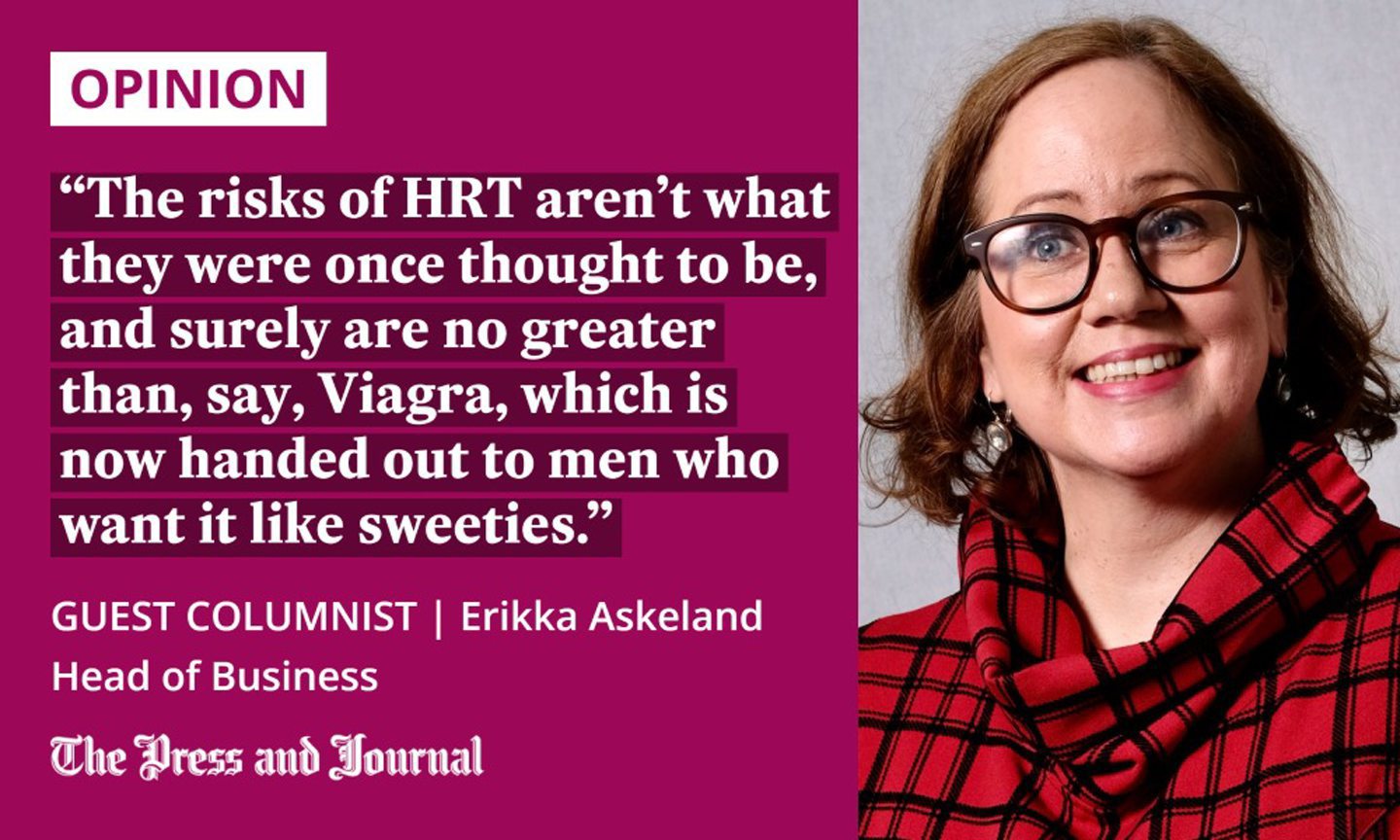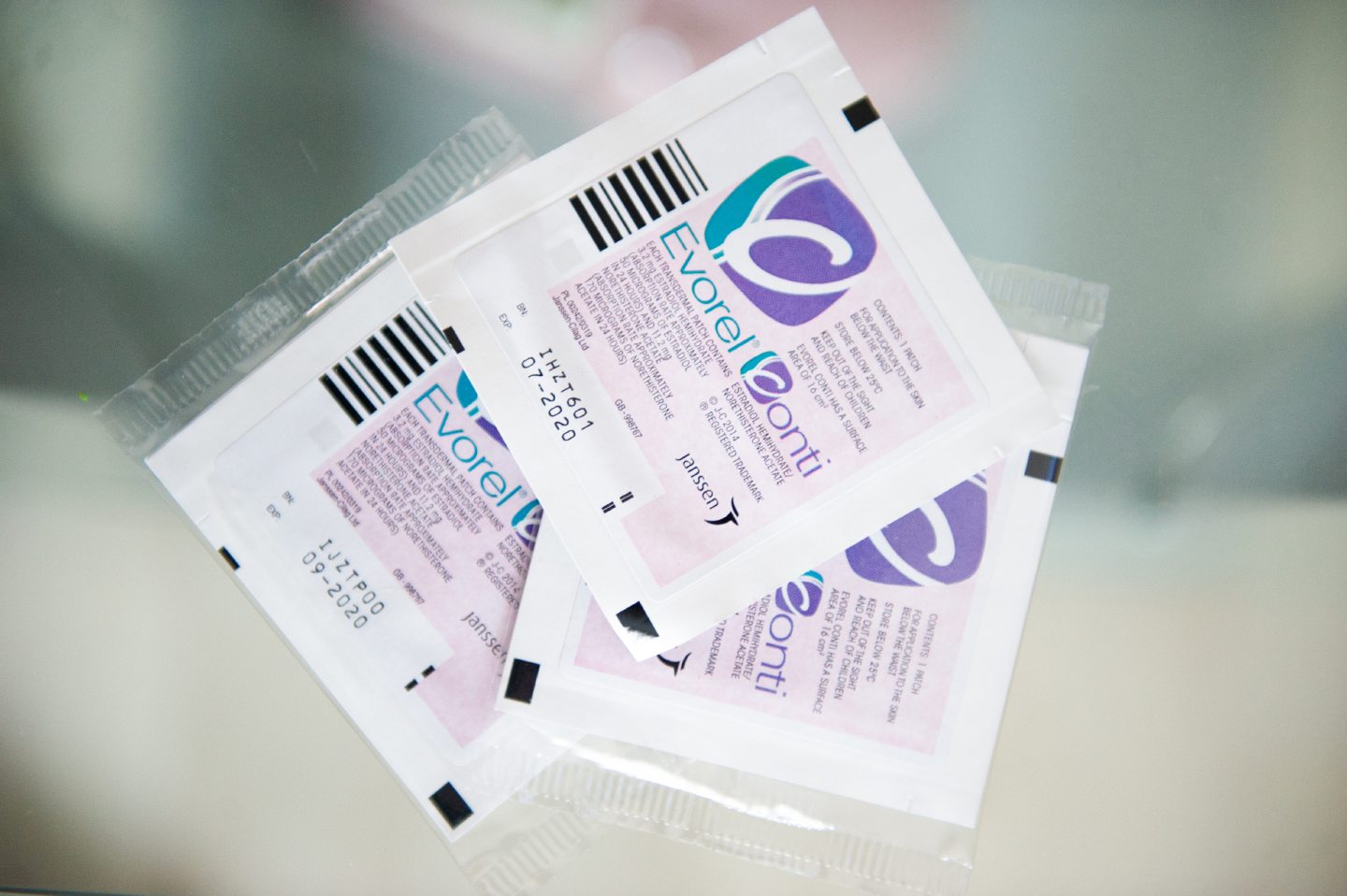It was actually a relief when the doctor confirmed I was embarking on the menopause. I’d thought I was actually losing my mind.
It made sense of why I was waking up in the wee hours, my brain a carousel of bitter recrimination, anxious worry and regret spinning round and round relentlessly, like some funfair nightmare I couldn’t get off of. Not to mention the sheer quantity of sweat.
But it wasn’t the chronic anxiety, which would often clobber me from behind during the day, too, that drove me to the GP surgery. Funnily enough, I would likely have tried my best to power through and get on with it just like my mother did. But I was also concerned that I appeared to be bleeding to death for six weeks at a time, so rang for an appointment.

The improvement since I started taking hormone replacement therapy (HRT) has been immense, which is why I’ve been guarding my supply jealously.
Recent reports of shortages of HRT and the Scottish Government’s miserly refusal to make Utrogestan, a highly effective and easily absorbed formulation of progestogen, available on prescription can still bring me out in a perimenopausal rage.
Nor is it the first time that women’s wellbeing has been put at risk due to shortages of HRT – I recall very well the sense of despair last year as I drove around to at least three chemists in Aberdeen who were unable to fill my prescription before my staycation.
Luckily, I could take my script to London, where I was staying, and the local pharmacy could supply it – albeit with the added prescription charge we don’t have to pay in Scotland. That said, that £9.35 probably ranks among the best value of all time.
And don’t get me started on being doled out a supply of daily gel sachets three months at a time in an abundance of overcaution.
When your body has a shortage of something, you supplement it – it’s that simple
To be fair, it’s an improvement on when I started and I was going month to month, ringing the GP for a renewal, then ringing ahead to the chemists to ensure they actually had it in stock. What a waste of everyone’s time.
Progress has taken far too long
It has taken too long for better products and improved awareness to overcome some shoddy science which has prevented women from seeking treatment for decades – treatment which enables some of us to continue working in our jobs and others to avoid diseases of aging, such as osteoporosis.
The risks of HRT aren’t what they were once thought to be, and surely are no greater than, say, Viagra, which is now handed out to men who want it like sweeties.
I wondered if we needed to make another doc after our last one. But there were so many more questions that needed answering. We talk brain fog , testosterone, what to do if u can’t take hrt & more. My documentary Sex, Mind and the Menopause is Mon 9pm @channel4 #DavinaMenopause pic.twitter.com/KW5za3t54m
— Davina McCall (@ThisisDavina) May 1, 2022
There’s no doubt that peri- and menopausal women in the UK have formed a monstrous regiment, demanding access to the hormones that our bodies increasingly no longer produce. But, when your body has a shortage of something, you supplement it – it’s that simple.
Demand has grown thanks to ingenue-turned-HRT warrior, Davina McCall, and campaigning GPs, like Louise Newson, not to mention some hilariously rude social media groups that have galvanised us to realise we no longer need to suffer in silence.
And, if I know menopausal women (and I know a few), we no longer will.
Erikka Askeland is Head of Business for The Press and Journal


Conversation